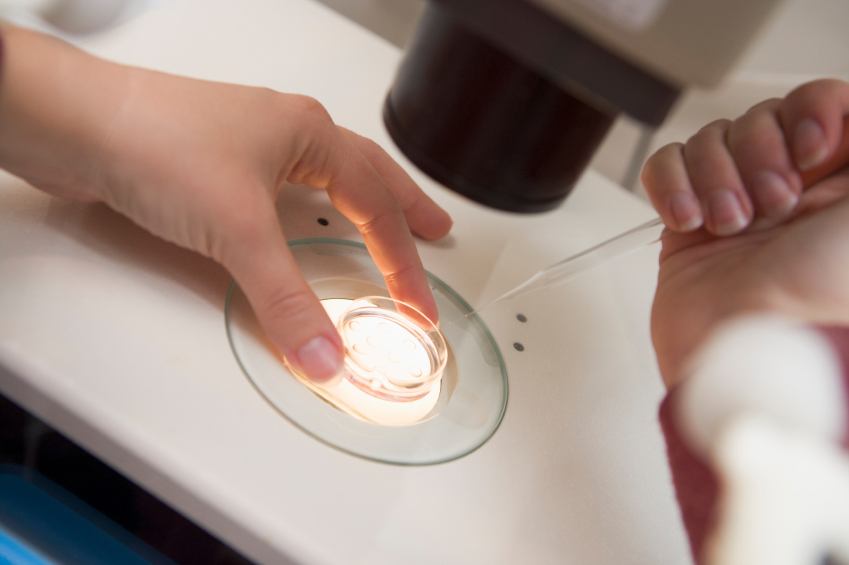Every year, 12,000 in vitro fertilizations are performed in Belgium, between 2,500 and 3,000 children are born with these techniques and 3,700 out of 10,000 couples concerned, come from abroad. However, until now, reproductive medicine and human genetics were not object of a specific legislation, except two royal orders concerning standards of the centres for medically assisted procreation (AMP) and reimbursement modalities for in vitro fertilizations. The Belgian Senate has just voted the first law which organizes the MAP and the text should be definitive before the end of the current legislature.
To supervise the practices
The bill deals with ” author(s) of the parental project “, a vague notion concerning all couples, married or not, heterosexual or homosexual as well as singles. It fixes an age limit for women: 45 years maximum for oocyte sample and implantation; 47 years for embryo implantation and insemination. Minor patients (under 16) are excluded, unless medical exception (for instance, a young woman with cancer who wants to preserve her oocytes before a chemotherapy treatment). It authorizes pre-implantation diagnosis and the conception of “designer baby”.
Then, the text authorizes implantation and post-mortem implantation of supernumerary embryos if the father agrees as long as he lives.
Children: subject of a convention
The law foresees a convention between patients and centres for MAP, specifying their identity, age, address and the method used. The status of supernumerary embryos is mentioned, especially to settle awkward situations as a separation, an insolvable difference of opinion between the authors of the parental project, the death of one of them: cryopreservation during 5 years (except derogation), affectation to research or donation. 24,000 supernumerary embryos are frozen each year. In fact, research on supernumerary embryos and the creation of embryos for research are authorized in Belgium since May 2003.
The costs of MAP in Belgium
The cost of IVF is covered for people with complementary private health insurance in Belgium, including for homosexual persons. Each treatment costs 1,587 euros per cycle of which €170 must be paid by the patient. A woman can have a maximum of 6 IVF treatments. For 2001, medically assisted reproduction cost 20 million euros for 9,462 cycles with “fresh” embryo transfer and 2,410 cycles with frozen embryo transfer, 452 oocyte donations and 48 embryo donations. The success rate of an IVF is 20%. Regarding inseminations, 800 sperm inseminations with donor have been reported in 2002; the financial compensation is 50 euros per donation and the global price to access the sperm bank is 600 euros.
The limits
Besides limits related to women age, the bill bans the simultaneous implantation of embryos coming from different donors of supernumerary embryos. It foresees that supernumerary embryos of a same donor or couple of donors cannot lead to childbirths in more than six different women. On the other hand, the law does not limit the number of oocytes that can be fertilized and even promotes the production of supernumerary embryos needed for research.
The questions in discussion concerning the rule of anonymity of the donor that opposes the “right” of the child to know its origins and the possibility of pairing (consisting in researching physical characteristics close to foster parents) which could not be considered as a practice with eugenic character. Finally, surrogate maternity (surrogate mother) is not mentioned nor prohibited.

